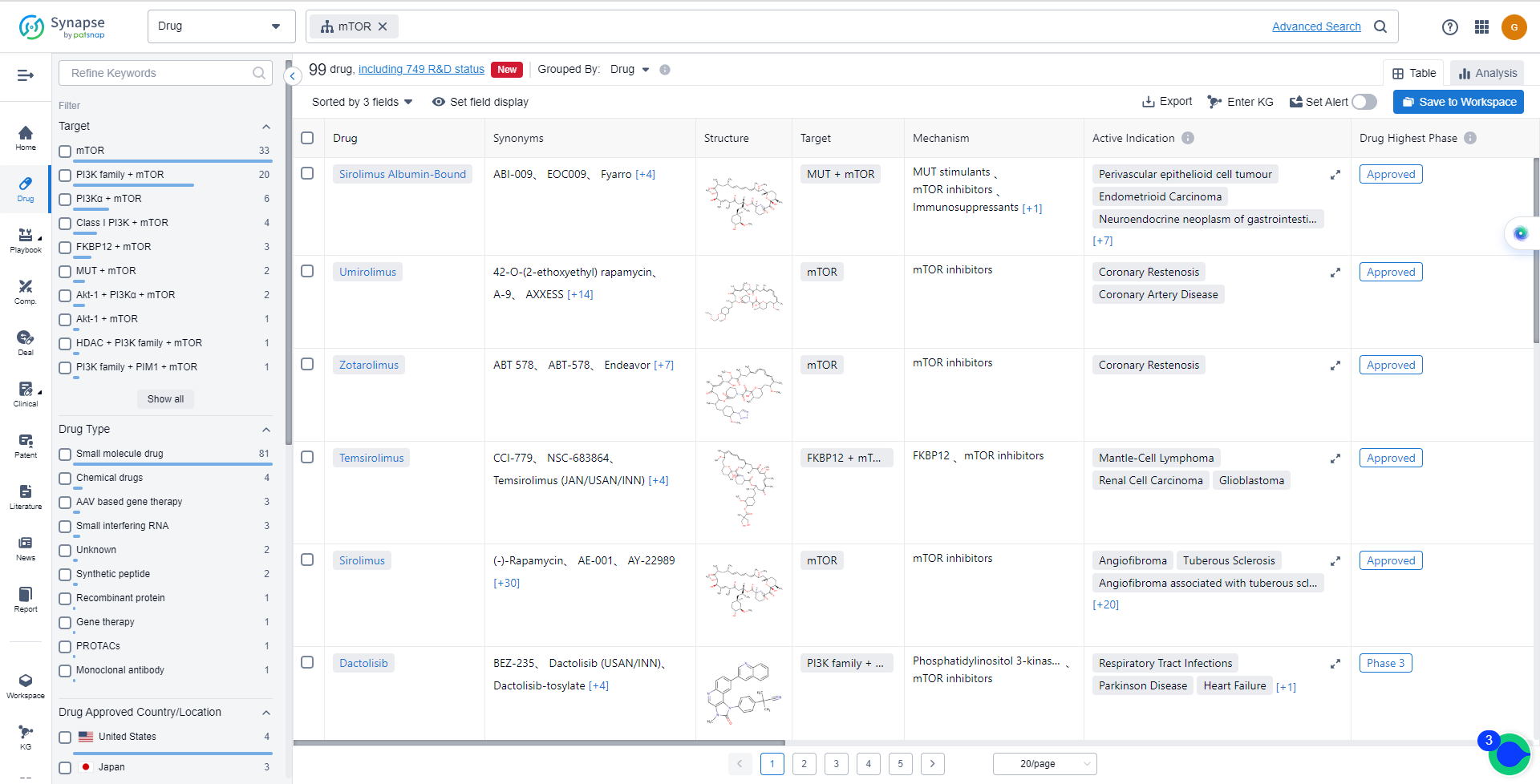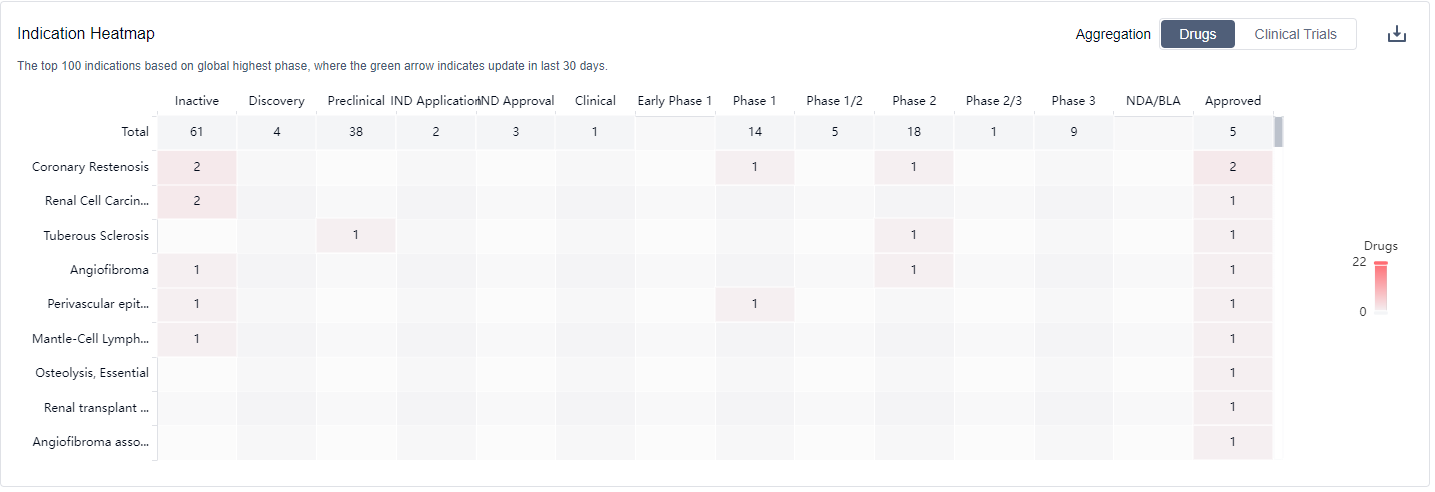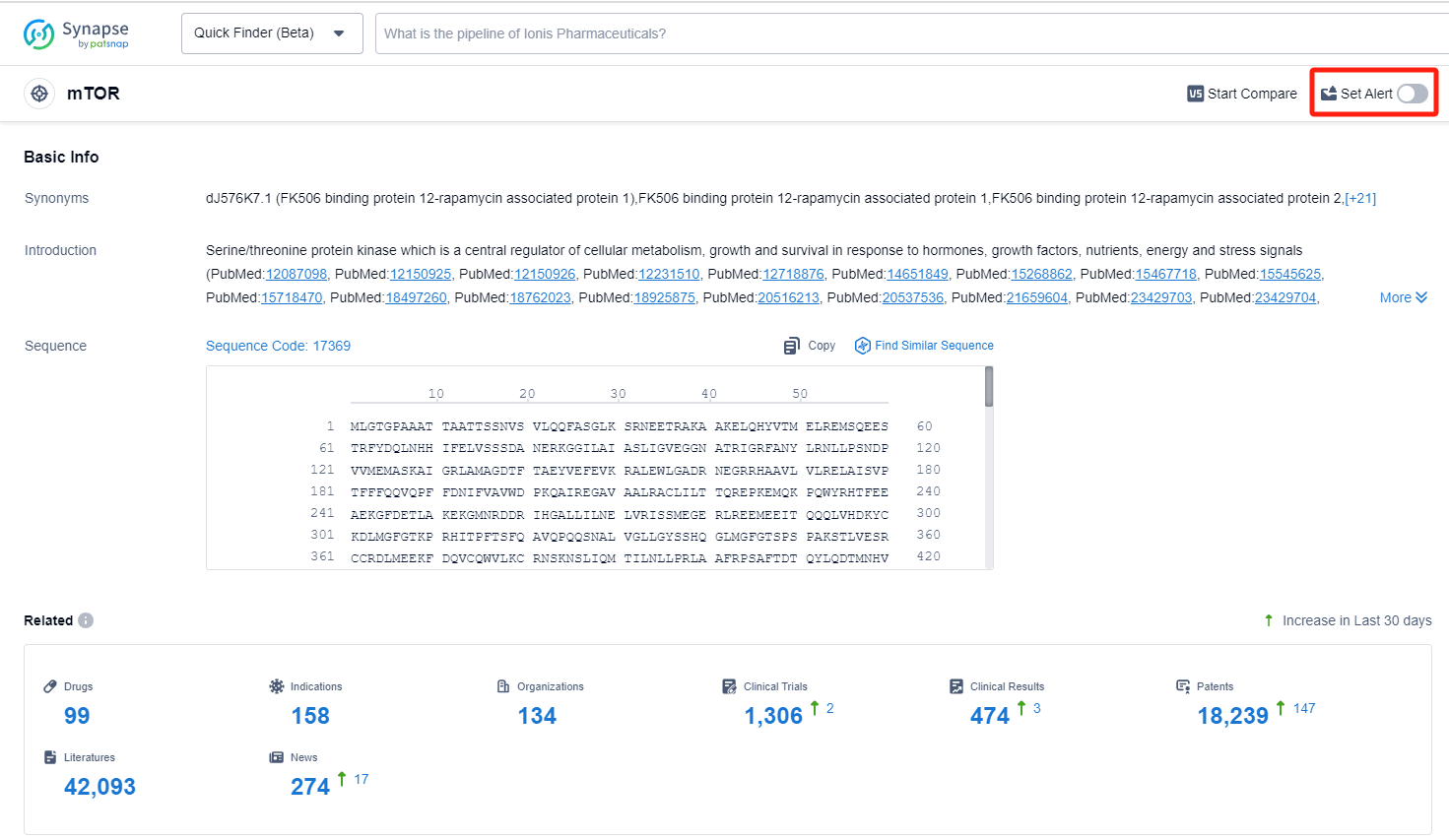Understanding mTOR Inhibitors and Methods to Keep Abreast of Their Recent Developments
mTOR, or mammalian target of rapamycin, is a crucial protein kinase that plays a central role in regulating various cellular processes in the human body. It acts as a key regulator of cell growth, proliferation, and survival by integrating signals from nutrients, growth factors, and energy status. mTOR is involved in protein synthesis, autophagy, lipid metabolism, and mitochondrial function. Dysregulation of mTOR signaling has been implicated in various diseases, including cancer, metabolic disorders, and neurodegenerative diseases. Understanding the role of mTOR in these processes has led to the development of targeted therapies that aim to modulate its activity for therapeutic purposes.
Research has found that dysregulation of mTOR signaling is associated with complications of mTOR-related diseases, and overactive mTOR signaling has been observed in various types of cancer. In addition, mTOR is closely related to neurodegenerative diseases such as Alzheimer’s disease, Parkinson’s disease, Huntington’s disease, as well as diabetes, obesity, and aging. Therefore, inhibiting the mTOR signaling pathway can effectively block the abnormal signal transduction of various growth factors, thereby preventing the occurrence and development of diseases. Currently, drug development targeting mTOR is a hot track, and three generations of mTOR inhibitors have been successfully developed. 1. Antibiotic class conformation inhibitors (first generation); 2. ATP competitive inhibitors (second generation); 3. Novel mTOR inhibitors (third generation); Each generation of mTOR inhibitors has different mechanisms of action, and the inhibitory potential of each inhibitor is also different. Among them, the third-generation mTOR inhibitors are an important research breakthrough, which inhibit drug-resistant mutants by connecting rapamycin with ATP competitive mTOR inhibitors through a linker.
The analysis of the target mTOR in the pharmaceutical industry reveals a competitive landscape with multiple companies actively developing drugs. Pfizer Inc. stands out with the highest stage of development and a strong R&D commitment. Indications such as Coronary Restenosis, Renal Cell Carcinoma, and Tuberous Sclerosis have approved drugs, indicating successful development. Small molecule drugs, Synthetic peptides, and Gene therapy show promising progress. The United States, Japan, and the European Union lead in drug development, with China also making progress. Overall, the target mTOR presents opportunities for innovation and competition in the pharmaceutical industry.
How do they work?
mTOR inhibitors are a class of drugs that target the mammalian target of rapamycin (mTOR), a protein kinase involved in regulating cell growth, proliferation, and survival. From a biomedical perspective, mTOR inhibitors are used in the treatment of various diseases, including cancer and certain autoimmune disorders. They work by inhibiting the activity of mTOR, which plays a crucial role in the signaling pathways that control cell growth and metabolism. By blocking mTOR, these inhibitors help to suppress the abnormal cell proliferation often seen in cancer and reduce the activity of the immune system in autoimmune diseases. This can lead to a decrease in tumor growth and inflammation, respectively. Examples of mTOR inhibitors include rapamycin (sirolimus) and its derivatives, such as everolimus and temsirolimus.
List of mTOR Inhibitors
The currently marketed mTOR inhibitors include:
- Sirolimus Albumin-Bound
- Umirolimus
- Zotarolimus
- Temsirolimus
- Sirolimus
- Dactolisib
- EM-100
- Gedatolisib
- Paxalisib
- Qtorin
For more information, please click on the image below.
What are mTOR inhibitors used for?
The main application directions of mTOR inhibitor research include cancer, diabetes, Alzheimer’s disease, and autoimmune diseases. For more information, please click on the image below to log in and search.
How to obtain the latest development progress of mTOR inhibitors?
In the Synapse database, you can keep abreast of the latest research and development advances of mTOR inhibitors anywhere and anytime, daily or weekly, through the "Set Alert" function. Click on the image below to embark on a brand new journey of drug discovery!








